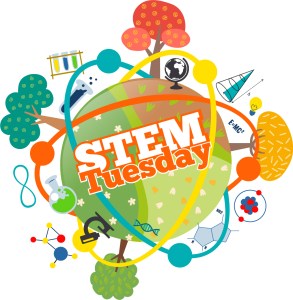
STEM Tuesday–Astronauts and Space Travel– Interview with Author Tanya Lee Stone
Welcome to STEM Tuesday: Author Interview & Book Giveaway, a repeating feature for the last Tuesday of every month. Go Science-Tech-Engineering-Math!
Today we’re interviewing Tanya Lee Stone, author of Almost Astronauts: 13 Women Who Dared To Dream. It’s a fascinating look at the early days of astronaut training where women were barred from participating despite, in some cases, possessing superior skill levels. The New York Times Book Review said, “Stone’s carefully researched book makes the point that in the 1950s and ’60s there were ’13 women who… had the Right Stuff’ – but were the wrong sex at the wrong time.”
* * *
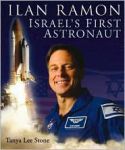 Christine Taylor-Butler: Tanya, you are one of the most accomplished authors in the field with more than 100 books under your belt. One of your superpowers seems to be telling compelling stories of lesser known historical figures whose contributions have left an indelible mark on society. For example, you wrote about Ilan Ramon, the first and only Israeli astronaut to date. What lead you to his story?
Christine Taylor-Butler: Tanya, you are one of the most accomplished authors in the field with more than 100 books under your belt. One of your superpowers seems to be telling compelling stories of lesser known historical figures whose contributions have left an indelible mark on society. For example, you wrote about Ilan Ramon, the first and only Israeli astronaut to date. What lead you to his story?
Tanya Lee Stone: Gosh, that book was written in the beginning of my career, before I was choosing my own topics. His story was so compelling that I dove right in.
CTB: In researching Ilan Ramon you came across private research that was conducted decades prior (1961) to determine if women were qualified to go into space. That snippet of information lead to writing Almost Astronauts – which earned you the American Library Association’s Sibert Award. Do you find that your book research leads you to other serendipitous topics for future books?
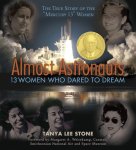 Tanya: Yes. It was in doing the research for the Ilan Ramon book that I discovered a snippet of information about Jerrie Cobb–and that led me to write Almost Astronauts. That happens to me a lot. I’ll get lost in the library, immersed in research, and uncover all kinds of fascinating things that plant seeds in my brain for future books. I think I was writing about Elizabeth Blackwell (Who Says Women Can’t Be Doctors?!) when I fell in love with Ada Lovelace and later wrote Who Says Women Can’t Be Computer Programmers?!
Tanya: Yes. It was in doing the research for the Ilan Ramon book that I discovered a snippet of information about Jerrie Cobb–and that led me to write Almost Astronauts. That happens to me a lot. I’ll get lost in the library, immersed in research, and uncover all kinds of fascinating things that plant seeds in my brain for future books. I think I was writing about Elizabeth Blackwell (Who Says Women Can’t Be Doctors?!) when I fell in love with Ada Lovelace and later wrote Who Says Women Can’t Be Computer Programmers?!
CTB: You have a journalistic tenacity when it comes to tracking down primary sources, sometimes calling the person or their families to obtain photos, letters and journals. You speak of taking the time to gain their trust. How long does it take you, on average, to do the research for your books?
Tanya: Every book is really unique. It depends on how difficult it can be for me to find everything I need. The more obscure the story, the harder the job. Courage Has No Color took me 10 years to research and write because I was determined to track down as many of the men (or their family members) as I could to find primary sources such as letters, journals, and photographs to allow me to tell that story.
CTB: That’s a huge learning lesson for aspiring writers and students who believe primary resources are books written by other people about a particular subject.
Tanya: The time is well worth it; I consider it an honor and a privilege to shine a light on these stories–especially while some of these extraordinary people are still living!
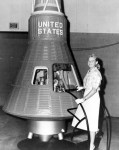 Tanya: What surprised me most is what still surprises me–that these women, who paved the way for every woman in the space industry today, are still not household names. I hope this book gets made into a film someday so it will have a much wider audience. Can’t you just see Reese Witherspoon as Jerrie Cobb?
Tanya: What surprised me most is what still surprises me–that these women, who paved the way for every woman in the space industry today, are still not household names. I hope this book gets made into a film someday so it will have a much wider audience. Can’t you just see Reese Witherspoon as Jerrie Cobb?
 CTB: Randolph Lovelace, the scientist conducting the tests, noted women were lighter and would take up less space on a mission. He calculated the difference in cost at $1,000 per pound compared to men if women were sent to space. That’s significant savings in 1960’s dollars. And yet NASA didn’t find it a compelling reason to open the program to women?
CTB: Randolph Lovelace, the scientist conducting the tests, noted women were lighter and would take up less space on a mission. He calculated the difference in cost at $1,000 per pound compared to men if women were sent to space. That’s significant savings in 1960’s dollars. And yet NASA didn’t find it a compelling reason to open the program to women?
Tanya: Nope. Shocking, right? And Lovelace thought for sure that was going to be the fact that would make him a hero. So disappointing.
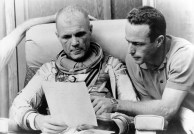
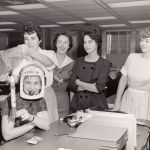 CTB: Nineteen women were tested. Thirteen successfully completed the testing, in many cases performing better than their male counterparts. Despite their proven skills, women were shut out of the astronaut program until 1978. You’re careful to explain the era in which these events occurred. Still, did it surprise that both John Glenn and Scott Carpenter both testified in Congress against having women in the program?
CTB: Nineteen women were tested. Thirteen successfully completed the testing, in many cases performing better than their male counterparts. Despite their proven skills, women were shut out of the astronaut program until 1978. You’re careful to explain the era in which these events occurred. Still, did it surprise that both John Glenn and Scott Carpenter both testified in Congress against having women in the program?
Tanya: Yes, it did surprise me–and it angered me. But what surprised me even more was that Jackie Cochran did the same thing to them! So much for the sisterhood, eh?
Tanya: I write books about things that I have a strong emotional connection to, or passion for–whether that connection is positive or negative. The kind of thing that makes me say, “Wow, I can’t wait to share that with readers–that’s so cool, or that’s so interesting, or that’s so unjust!” So what I hope is that readers are as intrigued by the stories as I am, because they are the reason I’m sharing the story in the first place.
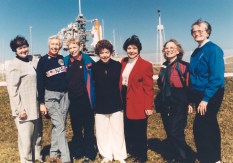
CTB: Note to readers. This book is well worth checking out. There’s a shocking revelation at the culmination of the women’s fight to be recognized. I promised not to reveal it here but it helps explain what made this book so popular with awards committees. The author’s ability to tell the story of breaking barriers in the women’s own words makes for a compelling narrative, as does the discussion of the time period in which the events takes place. Enjoy.
Win a FREE copy of Almost Astronauts: 13 Women Who Dared to Dream.
Enter the giveaway by leaving a comment below. The randomly-chosen winner will be contacted via email and asked to provide a mailing address (within the U.S. only) to receive the book.
Good luck!
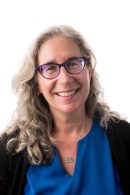 Tanya Lee Stone is an Assistant Professor at Champlain College in Burlington, Vermont, teaching in the Professional Writing Program. She started her career as an editor in New York. After moving to Vermont in the late 90s, she started writing. She is best known for telling true stories of unsung heroines, with themes of empowering girls and women threaded throughout her work, such as Girl Rising, Almost Astronauts, Who Says Women Can’t Be Doctors?! and Who Says Women Can’t Be Computer Programmers?! Her articles, essays, and reviews have appeared in The Horn Book, The New York Times, School Library Journal, and Publishers Weekly.
Tanya Lee Stone is an Assistant Professor at Champlain College in Burlington, Vermont, teaching in the Professional Writing Program. She started her career as an editor in New York. After moving to Vermont in the late 90s, she started writing. She is best known for telling true stories of unsung heroines, with themes of empowering girls and women threaded throughout her work, such as Girl Rising, Almost Astronauts, Who Says Women Can’t Be Doctors?! and Who Says Women Can’t Be Computer Programmers?! Her articles, essays, and reviews have appeared in The Horn Book, The New York Times, School Library Journal, and Publishers Weekly.
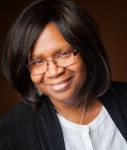 Your host is Christine Taylor-Butler, MIT nerd and author of Bathroom Science, Sacred Mountain: Everest, Genetics, and many other nonfiction books for kids. She is also the author of the middle grade sci-fi series The Lost Tribes. Follow @ChristineTB on Twitter and/or @ChristineTaylorButler on Instagram
Your host is Christine Taylor-Butler, MIT nerd and author of Bathroom Science, Sacred Mountain: Everest, Genetics, and many other nonfiction books for kids. She is also the author of the middle grade sci-fi series The Lost Tribes. Follow @ChristineTB on Twitter and/or @ChristineTaylorButler on Instagram
Awesome book!!
As a child growing up in the sixties, I wanted desperately to become an astronaut. I don’t remember ever thinking being a girl would shoot down that dream. I guess I would have learned otherwise had I pursued it. Looking forward to checking out this book! All the best to you!
This topic is one of my favorites. Thank you for the chance to win a copy. I’m looking forward to reading this book and learning about these amazing women.
Thank you for writing this. It’s important to highlight the times when people were “locked out” because of the gender, race, etc., so young readers are aware of past prejudices and can be sure to address them as they mature if they happen today. I had no idea about the female astronauts at that time period. Best wishes on your new book.
What an interesting topic. This book looks amazing.